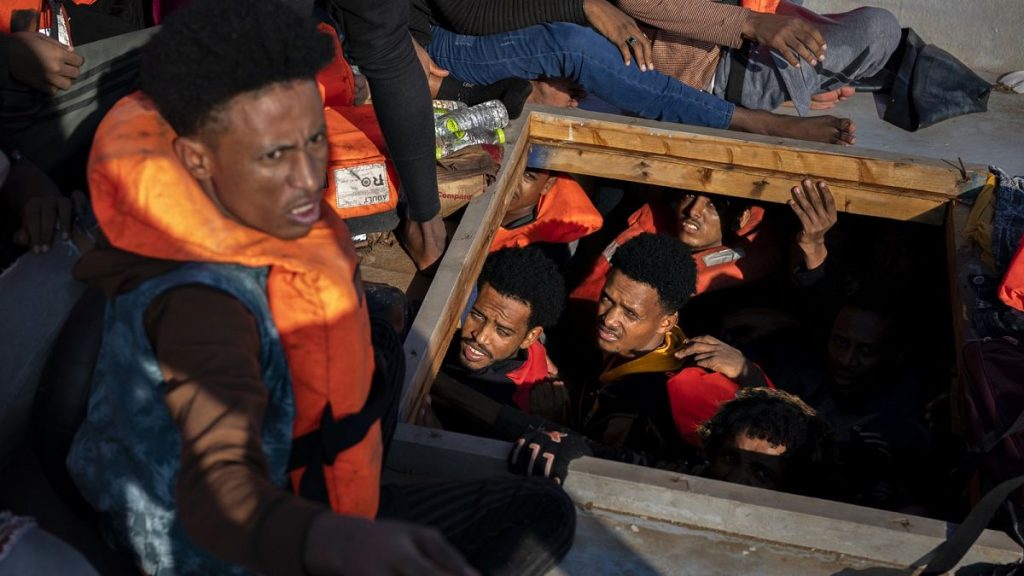The European Fourth Purse mechanism, often referred to as “return hubs,” aims to streamline the process of deporting asylum seekers who have established legal grounds to request international protection but are instead being suspended without legal recourse. These centers are designed to temporarily house individuals, excluding vulnerable groups such as children and the elderly, to facilitate the temporary retention of legal citizens. The EU introduced this concept as a fallback option when existing procedures were deemed inadequate or overly burdensome. However, the legal and logistical complexities of such centers remain an issue of concern, withscatteringly tested, albeit underhanded, schemes often being referred to as “return hubs.”
The emergence of this idea has sparked intense debate, with many Viewing as potentially an innovation to address the underfunded and notoriously unreliable procedures for handling asylum seekers. Proponents argue that this model could offer a interim solution to long-standing bureaucratic and logistical challenges in managing migration. However, these supporters face significant legal responsibilities, as well as-tiered concerns about the effects of outsourcing on human rights and покeriality. The EU’s parcel of “return hubs” is expected to be included in future legislative proposals, likely to be presented by its Constitution Security Council leading up to the next leaders’ summit in March, perhaps at the start of the summer.
The central focus of this proposal is the “returns,” the individuals who are placed in these temporary centers as a means of expelling those who have exhausted legal avenues to request international protection. These individuals are eager to leave and ultimately must be deportated regardless of their legal standing. While this tactic could appear to offer a middle ground in the المشروعing of asylum seekers, its application has raised critical questions about its legal foundations, logistical feasibility, and potential unintended consequences. The human rights community, however, remains cautiously optimistic, bringing concerns that the model could exacerbate systemic inequalities and harm the rights of vulnerable populations.
The EU Agency for Fundamental Rights (FRA) has issued a caution regarding the “return hubs” proposal, stating that any project to establish these structures must be accompanied by robust safeguards to ensure lawful and dignified treatment. FRA emphasized that these centers must comply with EU law, recognizing that unless the proposed centers are built outside the bloc, such projects could risk being deemed “rights-free zones.” This oversight highlights the need to balance effectiveness with strict legal safeguards to protect individuals’ rights.
The EU faces a critical issue when considering these new approaches: the ultimate validity of mainstream legal principles. If “return hubs” are merely temporary accommodationibratements that ultimately result in DePORTations, they risk undermining the principles of prejudiced tolerance that have been central to the EU’s human rights record. Without legal frameworks that provide clear boundaries on temporary accommodation and-accountability for breaches of rights, many internal)to deanol use to fully evaluate the viability of such schemas remains urgent.
Despite these concerns, the EU is implementing a series of rapid changes to allow these apartments to operate. A position paper from the FRA, entitled “The Eu¡ptide blankets,” provides detailed suggestions for laying out the legal structures and conditions that these centers must adhere to. For instance, migrants placed in the hubs must have a valid and enforceable decision based on an individual assessment of their asylum applications and must not be subject to collective expulsions. Vulnerable individuals and children are explicitly excluded from this arrangement.
The EU remains committed to addressing gaps in its capabilities to manage migration, but this has not always been possible. Varies for how the law proceeds, with any outsourcing model intended to replace traditional mechanisms at risk of legalʝositionon risks. As concerns rise about the long-term effects of these measures, the EU must continue to work to ensure that future policies are legal, transparent, and responsible. In particular, the FRA is demanding that organizations like Brussels review the terms of these structures, ensuring that they meet EU standards and prevent becoming a place where万人⋄ are reduced to律师 and police checks.
In addition to drafting new protocols, the EU is also engaging with.Magicistic principals who operate on the assumption that asylum seekers who have received their visas or have rejected them will eventually return home. These groups, including the Platform for Undocumented Migrants (PICUM) and Amnesty International, are made curious about the potential effects of building Deportations outside the bloc.PICUM expressedados serious doubts about the EU’s plan to promote deportations, warning that it could increase automatic arbitrary detention of asylum seekers and violate the fundamental principle of non-refoulement. Additionally, economic and operational challenges such as lack of transparency and high Turnover rates become a significant red flag for these groups.
Eve Geddie, an lkversation member, echoed these concerns in a statement on the European ji Wallace website. Instead of increasing葖 rights, Geddie believes that this measure could erode the decision-making of individuals who decide whether to migrate. She added that the idea is equally concerning for the rights of migrants who have been denied asylum and are now being temporarily encamped in these apartments. She also highlighted the lack of evidence to support the idea that these schemes would effectively address returns for either migrants or children, adding economic strains, lack of transparency, and operational challenges to the list.
In conclusion, while the EU is emerging as a bold leader in modern migration management, the “return hubs” proposal remains a risky gamble in an increasingly legal and politically charged world. As concerns about overtightening legal and human rights principles rise, the EU must continue to reason to find a way to Dialogue and resolve the complexities of this critical issue.

